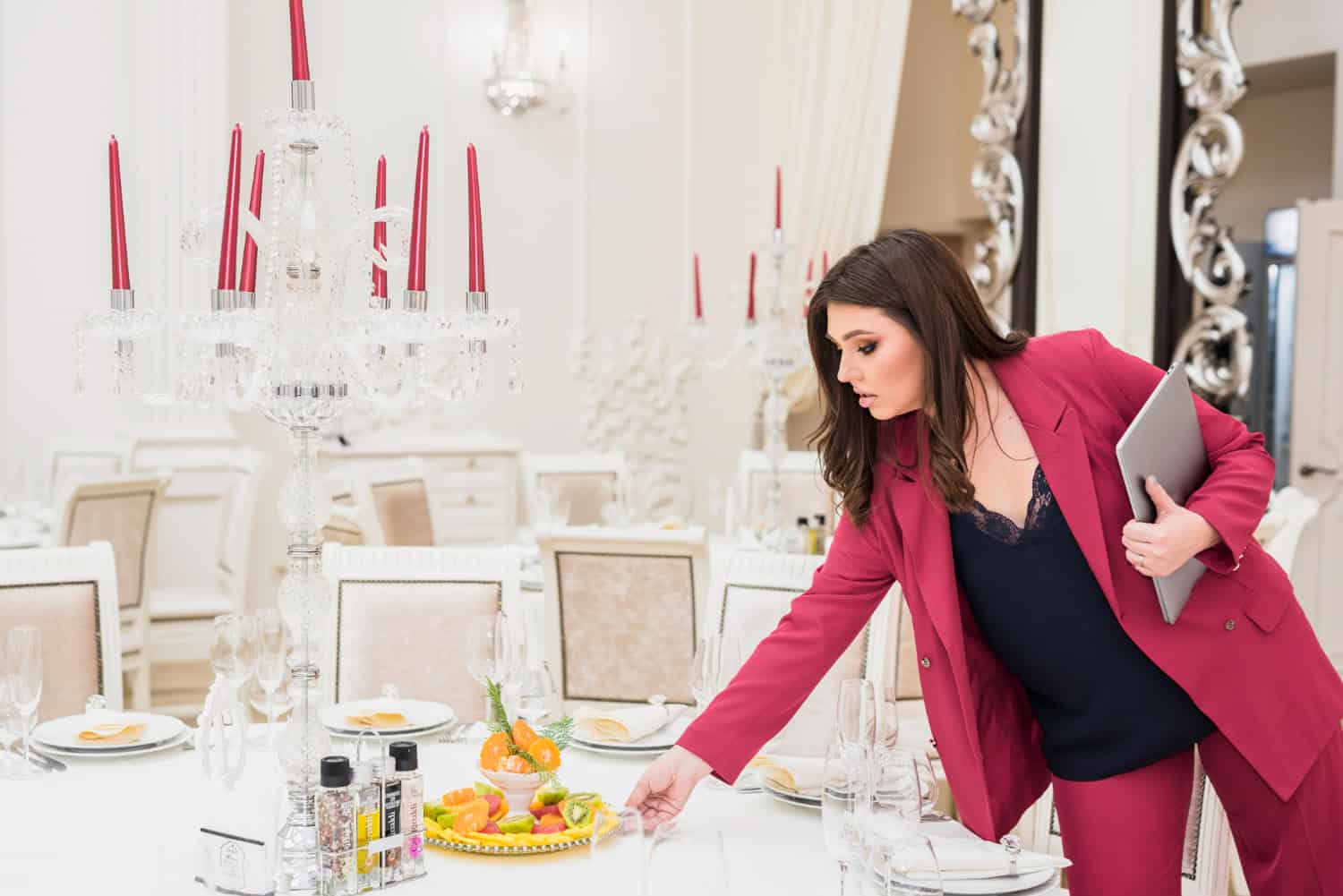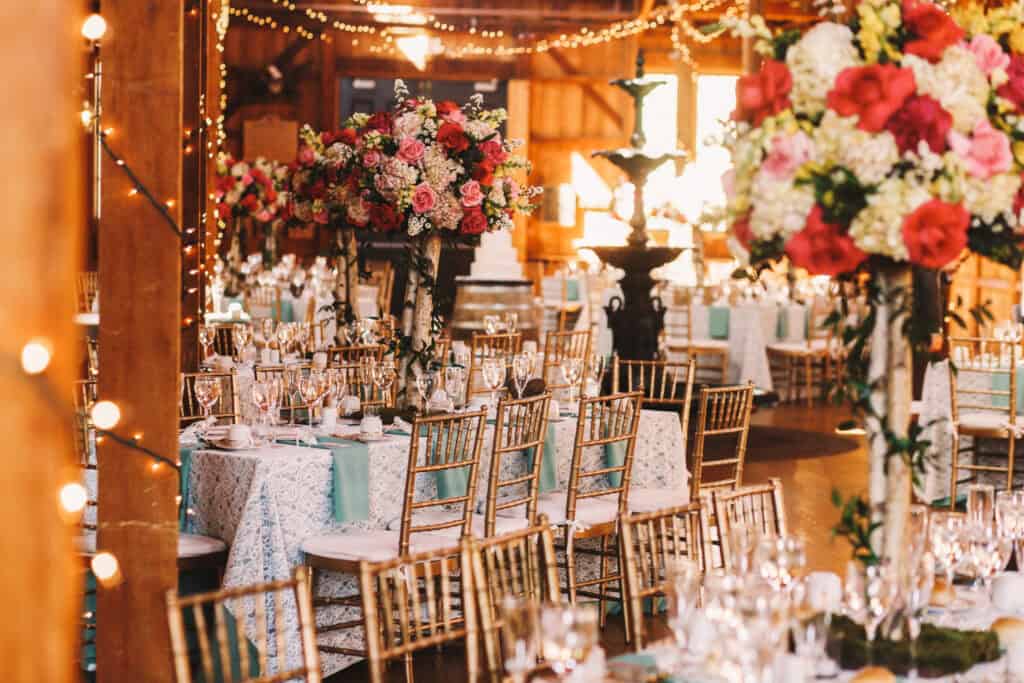
By Jermaine Thomas February 7, 2025
The success of any event—be it a wedding, corporate function, gala, or small gathering—greatly relies on smooth coordination, ranging from the décor to the dining experience. Although event planners have traditionally managed logistics, caterers are progressively taking on event planning responsibilities to create a unified and unforgettable experience for attendees. Caterers today do more than just supply food; they help create the event ambiance, design themed menus, and even manage logistics. Their increasing role makes them essential to event success.
1. More Than Just Food: The Modern Caterer’s Role
Traditionally, caterers focused solely on preparing and serving food. However, modern caterers play a much broader role in event planning. They collaborate with event organizers, consider guest preferences, and integrate their catering services seamlessly into the event’s overall vision. From selecting table settings to coordinating service styles, caterers now have an active role in the entire event experience.
2. Crafting a Cohesive Theme Through Catering
An event’s theme is crucial to delivering a memorable experience, and food plays a key role in reinforcing that theme. A caterer’s ability to align the menu with the event’s concept ensures cohesion in every aspect. For example:
- A rustic wedding can feature farm-to-table dining with organic ingredients.
- A corporate networking event may require elegant hors d’oeuvres and sophisticated plating.
- A cultural celebration can include traditional cuisine that resonates with the event’s heritage.
By tailoring menus to match the theme, caterers enhance the overall event atmosphere.

3. Balancing Dietary Preferences and Guest Needs
Organizing events demands inclusiveness, particularly regarding food options. Caterers are essential in addressing various dietary requirements, making sure every guest has an enjoyable experience. A proficient caterer accommodates guest preferences—from vegan and gluten-free choices to allergy-aware dishes—while upholding the event’s culinary standards.
For instance, a caterer planning a corporate luncheon must offer menu flexibility, ensuring all attendees find suitable meal options without compromising presentation or taste.
4. Venue Coordination and Layout Planning
A caterer’s role isn’t limited to food preparation; they also assist in venue coordination. Whether working in banquet halls, outdoor locations, or unconventional spaces, caterers must ensure the venue’s facilities align with their service needs. Key considerations include:
- Kitchen access and equipment availability.
- Seating arrangements and table spacing.
- Buffet vs. plated service logistics.
- Managing guest flow to prevent bottlenecks.
By understanding these elements, caterers help optimize event logistics and enhance guest comfort.
5. Timing and Service Execution
Successful events depend on accurate timing, and caterers are crucial in managing food service smoothly. Whether providing a multi-course dinner or managing food stations, caterers guarantee that guests receive their meals on time without interruptions.
For example, at a wedding reception, caterers work closely with event planners to synchronize meal service with speeches, entertainment, and dancing to maintain a smooth flow.
6. Staffing and Hospitality Management
A well-trained catering staff significantly contributes to the event’s success. From professional servers to bartenders and chefs, caterers ensure that their team provides excellent hospitality. Their responsibilities include:
- Greeting guests warmly and offering assistance.
- Ensuring synchronized service for large groups.
- Maintaining cleanliness and efficiency during food service.
A skilled and attentive catering team enhances the overall guest experience, making the event more pleasant.
7. Interactive Food Stations and Live Cooking
One of the most exciting catering trends in event planning is the incorporation of interactive food stations. These stations allow guests to engage with their food, making the dining experience more memorable. Examples include:
- Sushi rolling stations.
- DIY taco or pasta bars.
- Live grilling or carving stations.
- Custom dessert stations with toppings.
Interactive dining experiences add a dynamic touch to events, keeping guests entertained and engaged.
8. Signature Cocktails and Customized Beverage Menus
Beverages are equally essential as the food in fostering a unified guest experience. Caterers partner with mixologists to create unique cocktails that match the event’s theme. For instance:
- A beach wedding might feature tropical mojitos and pina coladas.
- A formal gala could offer wine pairings with each course.
- A corporate event may include a curated whiskey-tasting bar.
By customizing beverage options, caterers add a personal touch to events, making them unique and memorable.
9. Sustainable Catering: The Rise of Eco-Friendly Events
Sustainability is becoming a key factor in event planning. Many caterers now focus on eco-friendly practices, such as:
- Sourcing local, organic ingredients.
- Using biodegradable tableware.
- Minimizing food waste through portion control.
- Donating excess food to charities.
Environmentally conscious catering aligns with modern event trends and appeals to eco-aware guests.
10. Collaboration Between Caterers and Event Planners
While caterers and event planners have different responsibilities, their teamwork is crucial for a successful event. Successful communication between the parties guarantees that every aspect, from choosing the menu to arranging the venue, matches the objectives of the event. Caterers often work closely with planners to:
- Develop timelines for meal service.
- Coordinate décor elements related to dining.
- Ensure seamless transitions between food courses and event activities.
When caterers and event planners work in harmony, they create a seamless and enjoyable experience for guests.

11. Marketing and Positioning as Full-Service Event Caterers
Given the evolving role of caterers, many businesses now market themselves as full-service event professionals. By offering comprehensive packages that include menu planning, décor consultation, and staffing solutions, caterers position themselves as more than just food providers. Strategies for marketing these services include:
- Showcasing past event successes through photos and testimonials.
- Offering customizable catering packages.
- Engaging with clients through social media and event showcases.
By highlighting their event planning capabilities, caterers attract clients looking for an all-in-one solution.
12. Challenges and Solutions in Catering Event Planning
Despite their expertise, caterers face various challenges in event planning, including:
- Last-minute menu changes: Solution – having backup options and flexible ingredients.
- Unexpected guest count fluctuations: Solution – preparing additional servings within budget constraints.
- Venue restrictions: Solution – coordinating with venues in advance to understand limitations.
Anticipating and resolving these challenges ensures a smooth event execution.
Conclusion
Caterers today have a much broader role than just serving food. They actively participate in event preparation, guaranteeing a seamless guest experience through theme alignment, logistical coordination, and creative dining concepts. By seamlessly integrating catering into event execution, they improve overall guest pleasure and increase event success. As the catering industry evolves, the demand for full-service caterers that can manage all areas of event planning will increase. Caterers who embrace this trend not only increase their business opportunities, but also improve the whole event experience for their clients and guests.